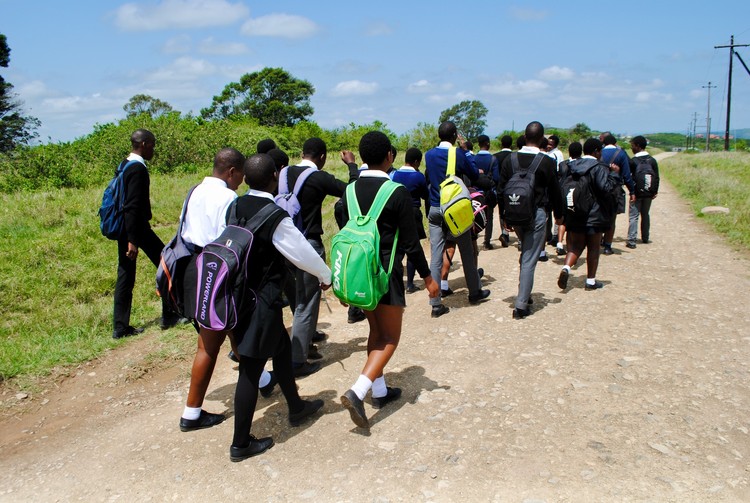Zimbabwean parents worried about learners’ move from schools in South Africa
There is still no clear plan for how the governments will help families voluntarily returning to Zimbabwe
Many Zimbabwean parents are concerned about their children’s transition from schools in South Africa when they have to move back to the country. Archive photo: Mkhuseli Sizani
- The discontinuation of the Zimbabwean Exemption Permit (ZEP) in June next year means many families will be forced to return to the country. This has left many parents worried about their children’s transition from schools in South Africa.
- We spoke to several Zimbabwean families who have started making arrangements to move to Zimbabwe.
- The Politeness Foundation expects more than 5,000 children to be accommodated in Zimbabwean schools in 2023.
- The foundation says 450 ZEP holders and 1,500 undocumented Zimbabweans have asked them for help to voluntarily return home.
Uncertainty surrounding the scrapping of the Zimbabwean Exemption Permit (ZEP) has left many parents worried about their children’s move from schools in South Africa.
GroundUp spoke to several Zimbabwean families who have been living and working in South Africa for more than a decade. They have started making arrangements to move their lives and belongings to Zimbabwe.
The families say they are forced to make the move following the South African government’s announcement that after 12 years it is now scrapping the ZEP. For now, the nearly 180,000 permit holders have until June 2023 to voluntarily return to Zimbabwe. The ZEP permit was to expire at the end of December 2022, leaving almost all of these permit holders undocumented.
Parents we spoke say there are major differences between the education systems in Zimbabwe and South Africa.
Sarah, 39, who asked that we not use her real name, has been a domestic worker in Paarl, Western Cape, for 12 years. Sarah told GroundUp she had sent her children, aged 6 and 13, to live with relatives in Zimbabwe at the end of November.
She said her children had received good results in their latest reports from Paarlzicht primary school. They should progress to grades 1 and 8 in 2023 but Sarah is yet to find places for them at schools in Zimbabwe. “I’m worried that they will have to repeat a grade.”
Sarah, who earns R3,500 a month, has already paid about R3,000 to transport her children to Zimbabwe. She estimates that it will cost another R5,000 for her bus ticket and transport of their remaining belongings to Murewa, a rural area some 100 kilometres from Harare.
According to teachers, primary education fees range from USD$20 (R350) and secondary fees start from USD$50 (R880) per term. Sarah said she has only saved enough money to pay for her children’s first term next year.
Melody Chaurura, the Zimbabwean Consul-General, said that they are still consulting government departments in both countries to address the issue.
The Politeness Foundation was formed in Zimbabwe in 2018 to empower people living with disabilities. Its scope has since been extended to help any Zimbabweans, documented or undocumented, who have opted to return to the country.
“We are appealing to the Zimbabwean government to allow learners [relocating from SA] to proceed to the next grade following assessments of the learner’s ability,” said Polite Mbowa, founder of the Politeness foundation.
Mbowa said that by mid year, the foundation had about 450 ZEP holders and more than 1,500 undocumented Zimbabweans who had asked for help to voluntarily return home. The foundation expects more than 5,000 children will need to be accommodated in Zimbabwean schools next year. The foundation is in talks with authorities about how the returnees will be assisted.
Union of Zimbabwean Educators Western Cape said that about 180 of its 250 members have indicated that they are willing to return to Zimbabwe with their families next year. One of the major concerns raised by members is that most of the returnees won’t be able to secure employment.
“The Zimbabwean government should be specific on how it is going to assist returning residents. At the moment it is just promising to assist. There should be something published. This should include how learners are going to be integrated into the Zimbabwean education system. At the moment returnees are not sure of the fate of their children,” said Jack Mutsvairo, union chairperson.
Next: Leaked report shows how Lottery school toilet project was hijacked
Previous: Gqeberha beachgoers will have to wait for the municipality to fix these filthy buildings
© 2022 GroundUp. This article is licensed under a Creative Commons Attribution-NoDerivatives 4.0 International License.
You may republish this article, so long as you credit the authors and GroundUp, and do not change the text. Please include a link back to the original article.
We put an invisible pixel in the article so that we can count traffic to republishers. All analytics tools are solely on our servers. We do not give our logs to any third party. Logs are deleted after two weeks. We do not use any IP address identifying information except to count regional traffic. We are solely interested in counting hits, not tracking users. If you republish, please do not delete the invisible pixel.



